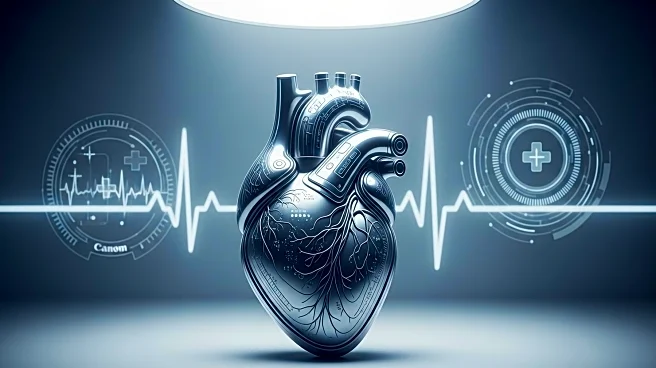What's Happening?
CorWave, a French medical device company, has announced promising interim results from its first-in-human study of the Left Ventricular Assisting System (LVAS) at the Heart Failure Society of America's Annual Scientific Meeting. The study, led by Prof. Chris Hayward at St Vincent's Private Hospital, involved the implantation of CorWave's innovative heart pump, which uses wave membrane technology to mimic natural heart pulsations. The primary endpoint was met with no device-related adverse events at 30 days, and the patient successfully underwent a heart transplant after 84 days of support. The device showed significant improvements in the patient's functional status and maintained physiological pulsatility.
Why It's Important?
The successful implementation of CorWave's LVAS represents a significant advancement in cardiac assist technology, potentially offering a safer and more effective alternative to existing devices. The technology's ability to preserve natural heart pulsations could reduce complications associated with continuous-flow devices, improving outcomes for heart failure patients. This development could influence the future of cardiac care, providing new options for patients who require mechanical circulatory support. The study's results also highlight the potential for CorWave's technology to become a standard in heart failure treatment, impacting both the medical community and patients globally.
What's Next?
CorWave plans to enroll additional patients in its first-in-human study before moving to a pivotal trial phase. The company aims to further validate the safety and efficacy of its LVAS technology. Continued positive results could lead to broader clinical adoption and regulatory approvals, potentially transforming the landscape of heart failure treatment. Stakeholders, including healthcare providers and patients, will be closely monitoring the outcomes of future trials to assess the long-term benefits and viability of this innovative technology.









